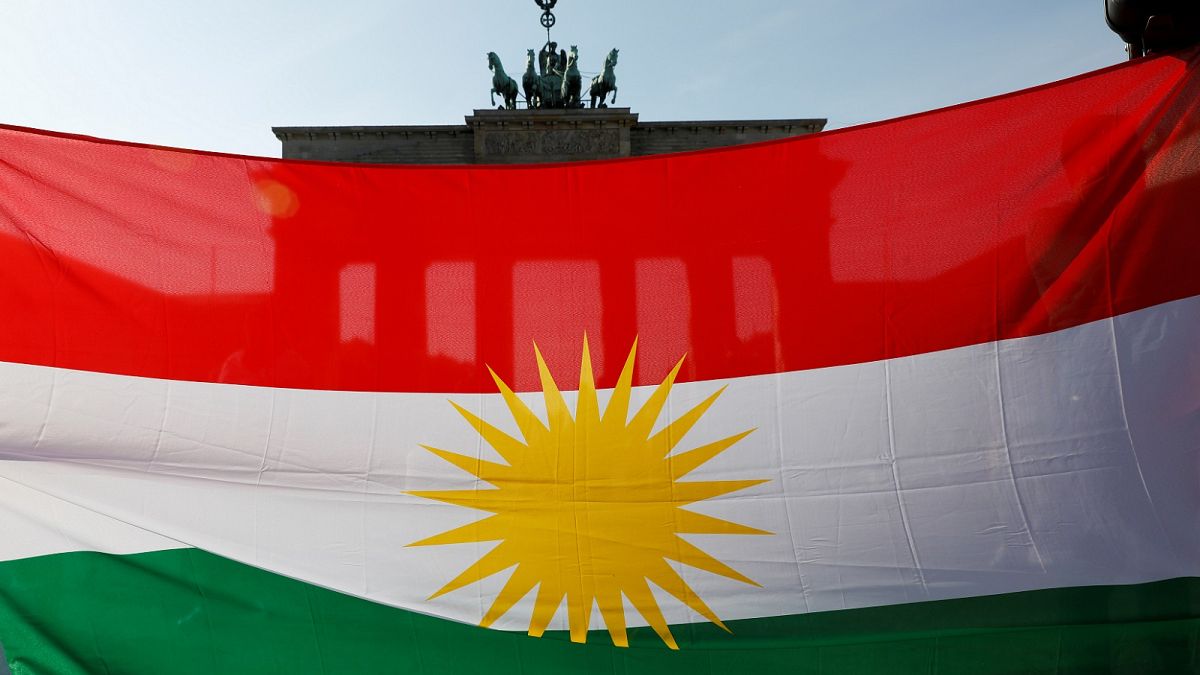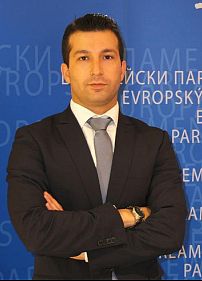Apart from the immediate disastrous results for the Kurds who have freed their areas from Islamic State (IS) with tremendous sacrifice, the US troops’ pull-out will have vast security implications for Europe as well.
After a Sunday phone call between US president Donald Trump and Turkish president Recep Tayyip Erdogan, the Trump administration announced on 6 October 2019 that the United States will pull out its remaining troops from north-east Syria, an area also called Rojava which is under the control of the Kurdish-led Syrian Democratic Forces (SDF).
As expected, Turkey perceived the pull-out of US troops as a green light for its long-desired military incursion into the Rojava region. Turkey has, since then, begun an aggressive military campaign which has led to a mounting death toll and the displacement of already a hundred thousand civilians according to the United Nations. Turkish proxies, mostly Jihadist groups used in this military campaign, have allegedly committed acts of war and there are fears of demographic changes as well as the ethnic cleansing of the Kurds.
Apart from the immediate disastrous results for the Kurds who have freed their areas from Islamic State (IS) with tremendous sacrifice, the US troops’ pull-out will have vast security implications for Europe as well. There are thousands of IS fighters in prisons guarded by the SDF. The ongoing fighting between the Kurdish-led SDF and the Turkish army has loosened the grip of the SDF over those prisons and has already caused former IS fighters to break out. This will, it is believed, create a conducive environment for the revival of IS in Syria and Iraq, which will in turn have a stimulus effect on IS sleeper cells across Europe. It is evident that the Turkish invasion has not only destabilized the EU’s borders, but has also created a potentially disastrous situation for Europe’s internal security in the long term.
The principal question is thus not whether Europe should react, but rather with which sense of gravity and urgency? So far, neither the EU nor its member states have dealt with the Turkish invasion of north-east Syria with an absolute level of seriousness. Apart from condemnations, the Council of the European Union has failed to agree on any collective EU sanctions on Turkey, and it is very much the question of the hour whether the EU leaders will succeed in doing so. It is clear that with the threat of ‘opening the gates’ for the 3.6 million Syrian refugees in Turkey, the EU has been once again strong armed by Erdogan’s Turkey.
That being said, it does not mean that the EU is totally out of the picture. France and Germany, together with a number of EU member states, have unilaterally suspended weapon sales to Turkey. France and Germany could lead collective European efforts of a number of ‘willing member states’ to find diplomatic and military options for northern Syria. There is a precedent for this.
When IS approached the Iraqi Kurdistan’s capital Erbil in August 2014, it was France that took the lead at the EU level. The French foreign minister, Laurent Fabuis, called his EU counterparts back from their holiday. To illustrate the sense of urgency with which France reacted at that time, in one instant, a colleague foreign minister had indicated that they are on holiday and resting. Fabius had replied by saying “no time for resting now; we rest when we die.” The EU Foreign Council convened for an urgent meeting on 15 August 2014. In that meeting, the foreign ministers decided that EU member states were allowed to provide military aid to the Kurdish Peshmerga fighters in their fight against IS. That decision, taken in the EU context, paved the way for a number of EU member states, including Germany, to help the Kurdish Peshmerga and in so doing, shifting the balance of power in favour of the Kurds.
In addition to the EU, being a permanent member of the United Nations Security Council allows France to pursue other diplomatic and military options. France could present an urgent resolution in the UN Security Council calling for the establishment of a “no-fly zone” over northern Syria. Meanwhile given the threat linked to the revival of IS, France, Germany and other willing European countries could actively work in the context of the Global Coalition against IS on assembling a ground force in northern Syria. Such a multi-national force could contribute to enforcing the “no-fly zone” while also assuming responsibility for the IS prisons. The European partners, especially France and Germany, could work closely, co-ordinating their actions to pursue all diplomatic and military options.
The Trump administration has been clear that it has no interest in bearing the cost of stability in northern Syria. The threat of Islamic State’s revival or the protection of Kurdish allies are no longer valid arguments for the US to keep its troops in northeast Syria. In the midst of this, Turkey’s military campaign will lead to further escalation and humanitarian disaster, while it may also be the start of profound long-term threats to Europe’s security.
For Europe, the cost of inaction may therefore be greater than taking firm and immediate action, even if that would put (trade) relations with Turkey at risk. It is a moment of truth for the European Union and its member states to show the world that they are determined to act forcefully in protecting human rights as well as preserving Europe’s security.
Zana Kurda is an EU affairs expert and a PhD researcher at the Institute for European Studies at the Free University of Brussels.
____________
Are you a recognised expert in your field? At Euronews, we believe all views matter. Contact us at view@euronews.com to send pitches or submissions and be part of the conversation.

